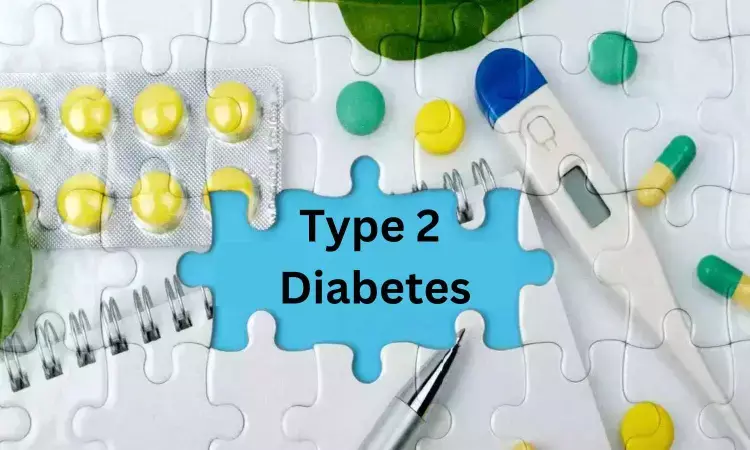- Home
- Medical news & Guidelines
- Anesthesiology
- Cardiology and CTVS
- Critical Care
- Dentistry
- Dermatology
- Diabetes and Endocrinology
- ENT
- Gastroenterology
- Medicine
- Nephrology
- Neurology
- Obstretics-Gynaecology
- Oncology
- Ophthalmology
- Orthopaedics
- Pediatrics-Neonatology
- Psychiatry
- Pulmonology
- Radiology
- Surgery
- Urology
- Laboratory Medicine
- Diet
- Nursing
- Paramedical
- Physiotherapy
- Health news
- Fact Check
- Bone Health Fact Check
- Brain Health Fact Check
- Cancer Related Fact Check
- Child Care Fact Check
- Dental and oral health fact check
- Diabetes and metabolic health fact check
- Diet and Nutrition Fact Check
- Eye and ENT Care Fact Check
- Fitness fact check
- Gut health fact check
- Heart health fact check
- Kidney health fact check
- Medical education fact check
- Men's health fact check
- Respiratory fact check
- Skin and hair care fact check
- Vaccine and Immunization fact check
- Women's health fact check
- AYUSH
- State News
- Andaman and Nicobar Islands
- Andhra Pradesh
- Arunachal Pradesh
- Assam
- Bihar
- Chandigarh
- Chattisgarh
- Dadra and Nagar Haveli
- Daman and Diu
- Delhi
- Goa
- Gujarat
- Haryana
- Himachal Pradesh
- Jammu & Kashmir
- Jharkhand
- Karnataka
- Kerala
- Ladakh
- Lakshadweep
- Madhya Pradesh
- Maharashtra
- Manipur
- Meghalaya
- Mizoram
- Nagaland
- Odisha
- Puducherry
- Punjab
- Rajasthan
- Sikkim
- Tamil Nadu
- Telangana
- Tripura
- Uttar Pradesh
- Uttrakhand
- West Bengal
- Medical Education
- Industry
Dorzagliatin treatment associated with diabetes remission in drug naive patients with type 2 diabetes

China: Dorzagliatin treatment leads to drug-free diabetes remission and stable glycemic control in people with type 2 diabetes (T2D) who have not yet received any previous drug treatment, a recent study published in Diabetes, Obesity and Metabolism has shown.
Recent findings from the phase 3 studies of dorzagliatin in patients with T2D who experienced inadequate glycaemic control with metformin alone (the DAWN trial) and in drug-naïve patients with type 2 diabetes (the SEED trial) have revealed that a novel allosteric glucokinase (GK) activator can be used as a new class of antidiabetic medicine.
Dorzagliatin acts on the intestinal L cells, pancreatic β-cells, and hepatocytes to reverse the impairment of glucagon-like peptide-1 (GLP-1) secretion and glucose-stimulated insulin, and glucose disposition in type 2 diabetes patients. Jiao'e Zeng, Jingzhou Hospital Affiliated to Yangtze University, Jingzhou, China, and colleagues investigate the post-treatment effect of dorzagliatin in drug-naïve patients with T2D concerning the achievement of stable glycaemic control and drug-free diabetes remission.
The researchers reported the 52-week outcome of the DREAM study and the results from the analysis of the characteristics of the participants who entered the DREAM study and achieved stable glycaemic control and diabetes remission.
The researchers enrolled patients who completed dorzagliatin treatment in the SEED trial and achieved stable glycaemic control in the 52-week study without any antidiabetic medication. Diabetes remission probability at week 52 was determined as the primary endpoint using the Kaplan–Meier method. They analyzed the potential factors that contribute to diabetes remission and stable glycaemic control based on the patient's characteristics before and after dorzagliatin treatment. A post hoc sensitivity analysis of diabetes remission probability was conducted using the American Diabetes Association (ADA) definition.
The study revealed the following findings:
- At week 52, the Kaplan–Meier remission probability was 65.2%.
- Based on the ADA definition, the remission probability was 52.0% at week 12.
- The significant improvements in the insulin secretion index ΔC30/ΔG30 (41.46 ± 77.68), disposition index (1.22 ± 1.65), and steady-state variables of HOMA2-β (11.49 ± 14.58) and HOMA2-IR (−0.16 ± 0.36) during the SEED trial were important factors in achieving drug-free remission.
- A significant improvement in time in range (TIR), a measure of glucose homeostasis, in the SEED trial from 60% to more than 80% (estimated treatment difference, 23.8%) was observed.
In conclusion, dorzagliatin treatment leads to stable glycaemic control and drug-free diabetes remission in drug-naïve patients with T2D. Improvements in β-cell function and TIR in these patients are important contributors to diabetes remission.
Reference:
Zeng J, Gan S, Mi N, Liu Y, Su X, Zhang W, Zhang J, Yu F, Dong X, Han M, Luo J, Zhang Y, Chen L, Ma J. Diabetes remission in drug-naïve patients with type 2 diabetes after dorzagliatin treatment: A prospective cohort study. Diabetes Obes Metab. 2023 Jun 29. doi: 10.1111/dom.15179. Epub ahead of print. PMID: 37385967.
Dr Kamal Kant Kohli-MBBS, DTCD- a chest specialist with more than 30 years of practice and a flair for writing clinical articles, Dr Kamal Kant Kohli joined Medical Dialogues as a Chief Editor of Medical News. Besides writing articles, as an editor, he proofreads and verifies all the medical content published on Medical Dialogues including those coming from journals, studies,medical conferences,guidelines etc. Email: drkohli@medicaldialogues.in. Contact no. 011-43720751


